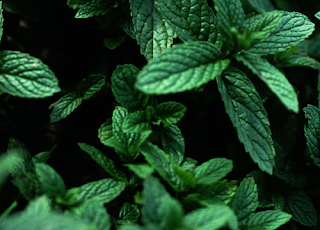Benefits of Peppermin
April 30, 2016
Edit

Benefits of Peppermint:
Description
This is a natural hybrid of Mentha aquatica L. (water mint) and M. spicata L. and is an easy growing perennial herb, growing up to 1 meter high, with underground runners and a distinctive menthol fragrance.
Family
Lamiaceae
Properties
Peppermint is a decongestant, cooling, fragrant and bitter herb that is anti-spasmodic, diaphoretic, digestive, antiseptic and slightly anesthetic. It contains a high amount of essential oil, which contains menthol, menthone, menthyl acetate and menthofuran.
Therapeutic Uses
Internal Uses:
- Used to treat morning sickness, nausea, and spastic complaints of the gastrointestinal tract, gallbladder, bile ducts, dyspepsia, flatulence, intestinal colic, flatulence, gastritis and enteritis.
- It is furthermore used for indigestion, cramping, stomach ulcers, spastic colon, irritable bowel syndrome and is also used for its stimulant properties.
- It can have a powerful stimulant effect on the body and also positively influence the mind and emotions.
External Use:
Externally it is used to ease bronchial and upper respiratory tract infections, sinusitis, itching skin, burns, ringworm, neuralgia, rheumatism and to ward off insects.
Special Uses:
- Peppermint essential oil clears the mind, help you focus and relieves mental strain.
- For the body, it is used for flu, colds, sinus and headache.
- The digestion is boosted by this oil and it is helpful for nausea and vomiting, while stimulating the gall bladder and secretion of bile.
- Furthermore it helps with a spastic colon and stimulates the lymph nodes.
- It has strong analgesic properties and is useful for muscle pains, bruises, contusions and joints. The antimicrobial and antiviral properties make it useful for a variety of topical applications.
- On the skin, it helps to relieve itching and irritation and helps to cool the skin and reduce redness.
- It has analgesic, anesthetic, anti-galactagogue, antiseptic, anti-spasmodic, astringent, carminative, cephalic, cholagogue, cordial, decongestant, emmenagogue, febrifuge, hepatic, nervine, stimulant, stomachic, vasoconstrictor and vermifuge properties.
Parts Used
The leaves are used, as well as the essential oil.
Known As
Other Name: Mentha nigricans
Genus and Specie
Mentha xpiperita (M. nigricans)
Safety Precautions and Warnings
- Peppermint essential oil must be used in moderation and the menthol contained in the oil may cause sensitizing to some individuals skin. It can irritate the mucus membranes if the dosage is to high.
- If used in pregnancy, very small amounts should be used.
- Not recommended for infants.